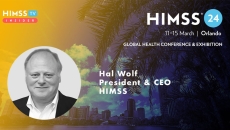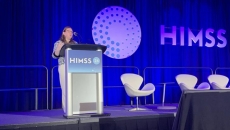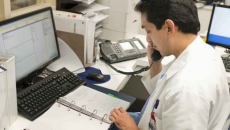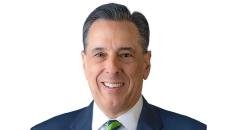Privacy & Security
Regulatory controls can provide a false sense of security, but there's a way to get ahead of cyber adversaries, said panelists at the HIMSS24 Healthcare Cybersecurity Forum.
HIMSS president and CEO Hal Wolf discusses healthcare trends, including patient engagement, AI advancements and cybersecurity challenges, and how HIMSS24 offers attendees a chance to learn from each other and collaborate in responding to those trends.
Trust in the digital economy is built upon several key principles like cybersecurity, privacy, interoperability and equity in technology development, use and standards, says NIST's Cherilyn Pascoe.
AHA says it welcomes the letter urging UHG to step up payments to hospitals, physicians and other providers.
Also: The ALPHV BlackCat ransomware group may have faked a second government takedown, while the extent of the protected-data leak is still unknown.
Advice for healthcare CISOs, CIOs and other security leaders on how best to protect their organizations from the vulnerabilities that lie within web apps, from Johannes Ullrich, dean of research at the SANS Technology Institute.
What we know about this "well-planned assault" underscores the need for transparency in reporting cyber incidents and highlights the urgency of contingency planning for healthcare organizations, says a leader from the National Cybersecurity Alliance.
UnitedHealth Group says the pharmacy network could be back online as soon as today.
The reach of the cyberattack is a looming crisis for providers' financial stability, particularly in rural areas, and could soon impact patient care, said Ted Okon of the Community Oncology Alliance.
By adding the content-as-a-service platform and other evidence-based patient education tools to its Ignite portfolio, WebMD will support 650+ healthcare organizations – including more than 50% of U.S. hospitals and several major payers, the company said.









